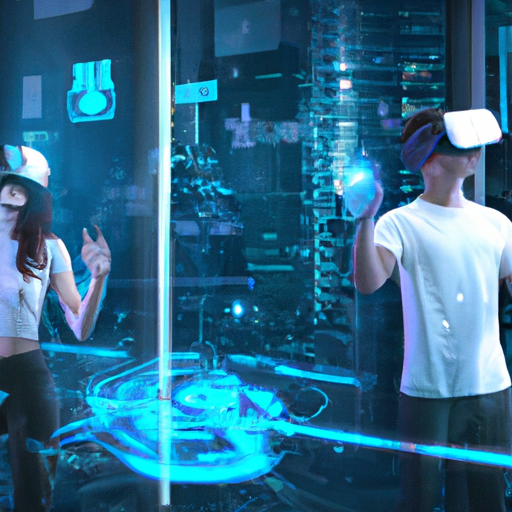The Future of the Virtual World: Insights from David Shrier
Key Points:
- David Shrier, author of ‘Basic Metaverse,’ discusses the future of the virtual world.
- The concept of the metaverse and its potential impact on various industries.
- Challenges and opportunities in the development of the metaverse.
- The importance of decentralized and user-driven metaverse platforms.
- Potential applications of blockchain technology in the metaverse.
In-depth Article:
The virtual world has been a topic of fascination and curiosity for many, and its potential is still unfolding. In a recent interview with David Shrier, author of the book ‘Basic Metaverse,’ we gained valuable insights into the future of the virtual world and its impact on various industries.
The concept of the metaverse is quickly gaining traction. It refers to a collective virtual shared space, created by the convergence of virtually enhanced physical reality and physically persistent virtual reality. In simpler terms, it is a fully immersive and interactive digital world where people can engage, explore, and create.
Shrier emphasized the profound impact the metaverse could have on industries such as gaming, entertainment, education, healthcare, and even finance. With the metaverse, individuals can transcend physical limitations and immerse themselves in experiences that were otherwise unimaginable. For example, virtual worlds can offer valuable learning environments where students can interact with educational content in a more engaging and immersive manner.
However, Shrier acknowledged that there are significant challenges in the development of the metaverse. One of the key challenges is creating a metaverse that is decentralized and driven by users rather than controlled by a central authority. This means empowering individuals to own and control their virtual identities and assets, ensuring privacy and security, and avoiding monopolistic control over the virtual world.
Blockchain technology, with its decentralized nature and cryptographic security, holds tremendous potential for facilitating the development of the metaverse. It can enable secure ownership, traceability, and interoperability of virtual assets across different platforms. In addition, blockchain-based decentralized applications (dApps) can empower users to create, trade, and interact with virtual content in a peer-to-peer manner, without intermediaries.
Shrier emphasized the importance of governance frameworks and standards in ensuring the ethical and responsible development of the metaverse. As the virtual world becomes more intertwined with our physical reality, it raises questions about ownership, intellectual property rights, and the overall impact on society. Establishing clear guidelines and regulations will be crucial to foster a fair and sustainable metaverse ecosystem.
In conclusion, the concept of the metaverse presents incredible opportunities for innovation and progress across various industries. David Shrier’s insights shed light on the potential impact of the metaverse and the challenges that lie ahead. By embracing decentralization, user-driven platforms, and blockchain technology, we can shape a metaverse that empowers individuals, fosters creativity, and connects people from all corners of the world.
Our Hot Take:
The future of the virtual world is promising, and the metaverse could revolutionize the way we interact, learn, and conduct business. However, it is crucial for developers and stakeholders to prioritize user autonomy, decentralization, and security to create a metaverse that benefits everyone. With the potential applications of blockchain technology, we can envision a metaverse that respects privacy, promotes innovation, and enriches our lives in unimaginable ways. The journey towards the metaverse is an exciting one, and we eagerly await the next phase of its development.
